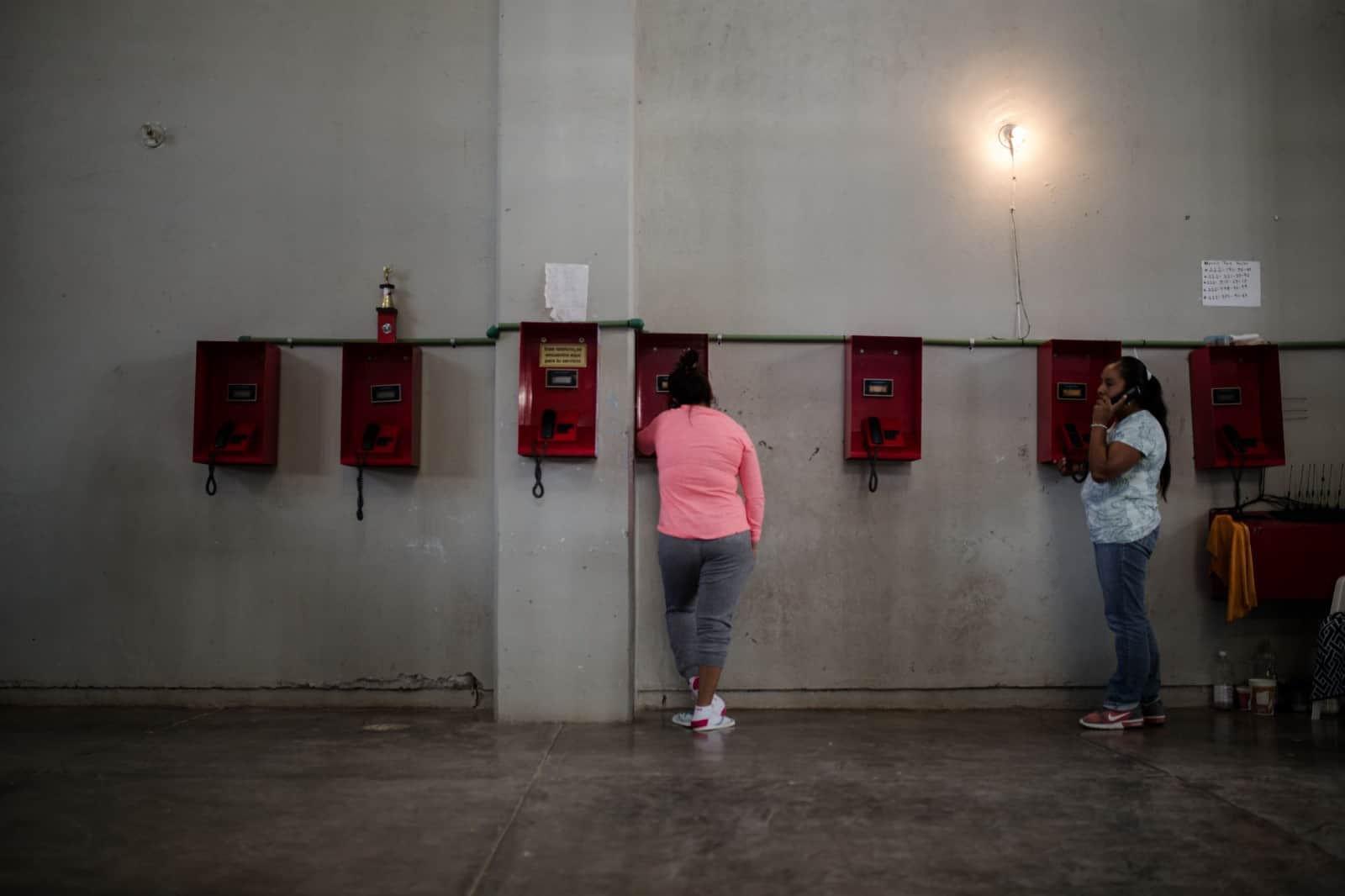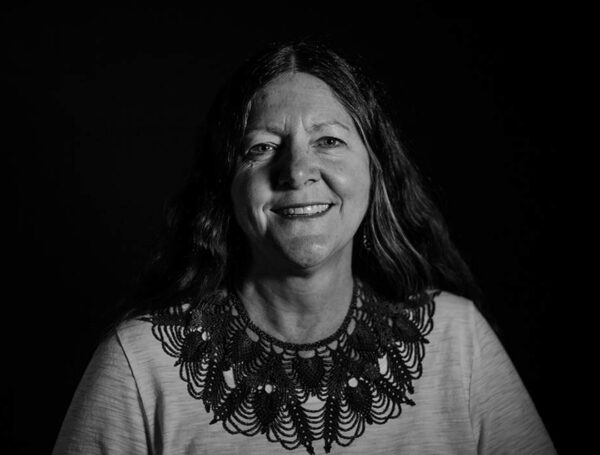A groundbreaking law that promotes alternatives to incarceration for women could go into force in Colombia as early as August 2022 and be implemented before the end of the year. What does the law mean for women and the punitive penal system? WOLA explores those questions and more.
A three-year campaign to promote alternatives to incarceration for women in Colombia is finally becoming a reality. Draft legislation presented in the Senate in 2019 and the House in 2020 was ultimately approved by both chambers. It allows for alternatives to incarceration for women who are single heads of households and meet a series of conditions, laid out below. However, former President Iván Duque refused to sign the legislation into law, issuing several objections, one of which was that it did not give equal treatment to men in similar situations. In a landmark ruling, presented in a communique released on July 6, 2022, Colombia’s Constitutional Tribunal recognizes the disproportionate impact of incarceration on women and declared that the president’s objections are without merit.
The Constitutional Tribunal has 30 working days to issue the actual ruling, after which President Gustavo Petro will have to sign it into law within six days. If this timeline is respected, the law will go into force by the end of August 2022, at which point the government has six months to put into place the regulations needed for its implementation.
The adoption of the proposed law sets an important precedent not only for Colombia, but for countries around the world that seek to incorporate a gender perspective into criminal legal policies. According to the Colombian NGO Dejusticia, “this law is a first step to correct the disproportionate impact that a criminal policy focused on incarceration and blind to social inequalities has had on women.”
Implementing the law will no doubt be difficult and complicated; however, if done fully and effectively, the law will reduce overcrowding in women’s prisons, allow families to stay together, and provide those who benefit from it with skills to improve their economic well-being, which will also help reduce recidivism.
Overview of the New Law
- To qualify, women must be single heads of households who are responsible for minor children or people with permanent disabilities, and have come into contact with the law as a result of living in situations of marginalization.
- The new law allows women who meet these conditions to substitute unpaid community service for prison terms. Community service can include improvement of public spaces, assistance to communities in situations of vulnerability, and educational activities, among others. The community service can be carried out in collaboration with public institutions or NGOs, and must be at least five hours and not more than twenty hours a week, over the period of time of the sentence.
- Of particular significance, the community service should not interfere with paid labor or educational activities, and should contribute to professional and/or educational formation.
- The law applies to women convicted to eight years in prison or less (with the exception of intra-family violence); this includes low-level drug offenses and non-violent robbery. Beneficiaries must voluntarily agree to the alternative to incarceration, and cannot have not been convicted of a previous offense in the last five years.
- The law can be applied retroactively. Women in prison who qualify can petition to have their prison sentence replaced with the community service program.
- The law also requires various ministries to design and adopt a public policy and strategy for helping women to train for and obtain employment upon their release.
- Also worth noting is that the Colombian Congress approved another law in June which guarantees the timely provision, at no cost, of menstrual hygiene products to women in prison. This initiative is also one that countries seeking to improve the conditions in women’s prisons should wholeheartedly adopt.
The Disproportionate Impact of Incarceration on Women
- The Constitutional Tribunal’s communique explicitly states that “the law, jurisprudence and doctrine have emphasized that women experience the deprivation of liberty differently” than men.
- Worldwide, women’s incarceration has been growing at a faster rate than men, largely due to draconian drug laws. According to a WOLA report, Women Behind Bars for Drug Offenses in Latin America: What the Numbers Make Clear, in the majority of the Latin American countries studied, drug-related offenses are the most common for women in prison, and the percentage of women incarcerated for drugs is almost always higher than that of men.
- The tribunal’s communique underscores that half of all women in prison in Colombia are there for low-level drug offenses and that in general, women do not play a significant role in criminal organizations. Hence, as elaborated in the WOLA report, their incarceration does nothing to disrupt drug markets, but does have devastating consequences for these women, their children and families, and their communities.
- The characteristics of women in prison in Colombia are similar to those in other Latin American countries. According to a detailed report produced by the Red Cross and the Javeriana University in 2018, 85 percent of women in Colombia’s prisons are mothers and 75 percent are single heads of household. They have low levels of education, which is associated with precarious economic situations. The most common form of employment (31 percent) is domestic work; 27 percent had no employment when they were detained.
- While all prisons in Colombia are severely overcrowded and fail to meet minimal basic needs, women deprived of liberty encounter additional hardships. Among others, they face gender-based discrimination and sexual violence, and woefully inadequate health care services. Just recently, a 25-year-old woman, Dayana Estefanía Poveda, died in the main women’s prison in Bogota. According to a statement by the Comité de Solidaridad con los Presos Políticos and Mujeres Libres Colombia (an organization founded and made up of formerly incarcerated women): “On the night of July 13, 2022, the woman said that she was having a medical emergency and asked the female guards to take her to the health center for treatment. According to the information provided by other women deprived of their liberty, the response of the female guards to her request was: “Why does she get sick at night?” They ignored the woman’s pleas, which resulted in her being found dead on the morning of July 14.”
Take-aways
- The approval of the law offering alternatives to incarceration for some women in Colombia comes after years of research and advocacy on behalf of human rights, academic and grassroot organizations, particularly with regards to the impacts of women’s incarceration for drug offenses. In 2019, a coalition came together to design and promote legislation which would specifically address the negative impacts of incarceration on women and their families by providing alternatives to incarceration. After former President Duque’s objections stalled the approval of this initiative, some of these same organizations, including Dejusticia and Mujeres Libres Colombia, presented arguments to the court supporting the legislation’s constitutionality and potential benefits for incarcerated women.
- If implemented effectively, the law will help Colombia comply with the United Nations Rules for the Treatment of Women Prisoners and Non-custodial Measures for Women Offenders, commonly known as the “Bangkok Rules,” which were adopted by the United Nations General Assembly on December 22, 2010 and promote non-custodial alternatives to incarceration. In directly addressing the disproportionate impact of incarceration on women, the law incorporates a gender perspective into the criminal legal system and promotes the human rights of women in contact with the law and their families.
- However, effective and timely implementation of the law is crucial to its success – and also very complicated. “Of particular concern,” Claudia Cardona of Mujeres Libres Colombia told me, “women who could benefit will have to show that when the offense was committed, they were living in a situation of poverty. How do you show that? Will it depend on the subjective opinion of the judge?” Additionally, as the work is not remunerated, it must be limited in time and not prevent the beneficiaries from caring for and providing for their families. The Ministry of Justice will have responsibility for both implementing the community service program and ensuring that it is carried out properly and with full respect for the rights of the women involved.
- Finally, effective implementation of the law to provide alternatives to incarceration to some women in Colombia is the first step in moving away from punitive approaches that put so many women —and men— behind bars. The Constitutional Tribunal’s communique and the legislation itself acknowledge that most women come into contact with the law due to situations of poverty, vulnerability and marginalization. Rather than investing in prisons, governments across the region should invest in community-based reforms and programs that promote gender equality and socioeconomic justice, allowing people to live lives with dignity.




